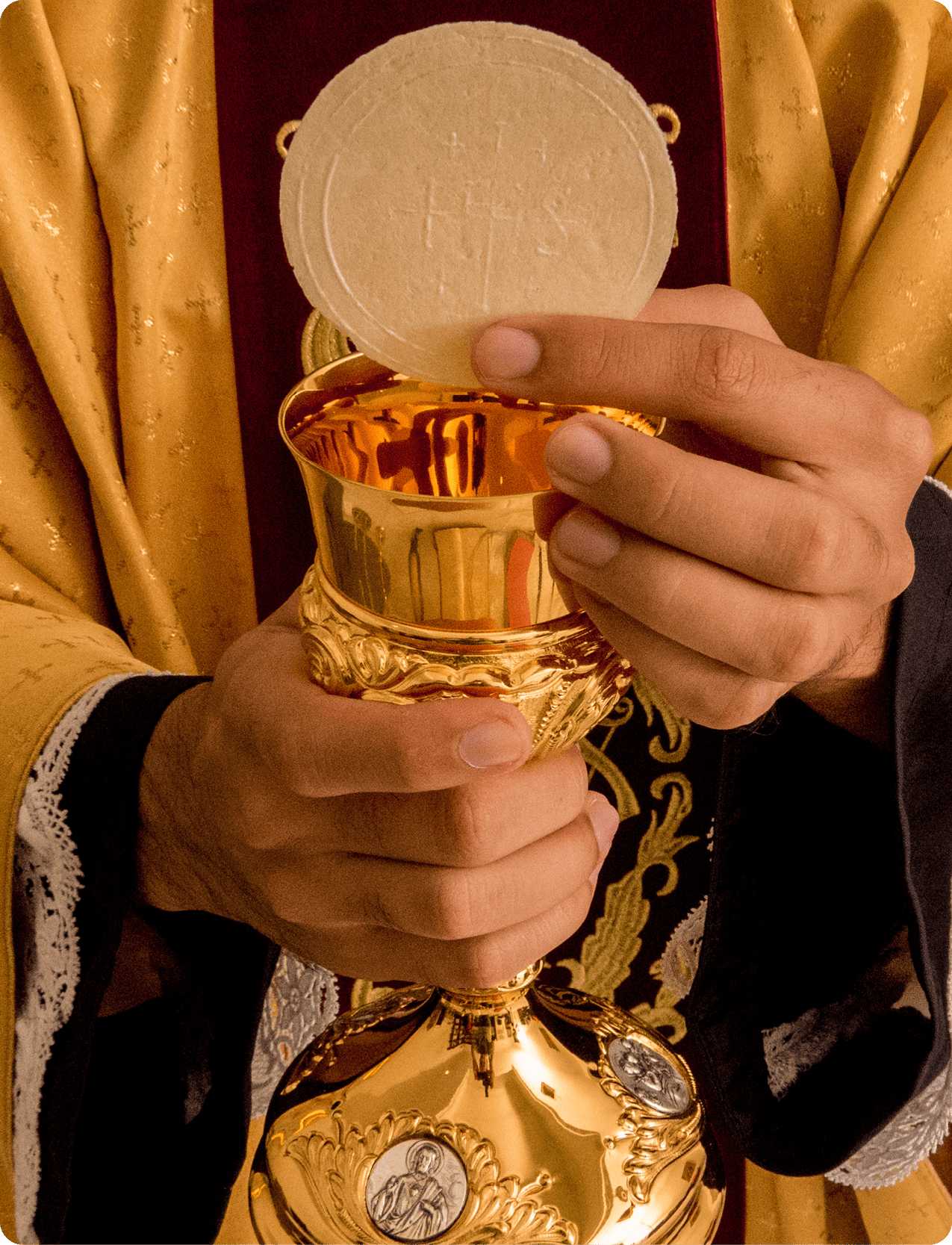“The dough they had brought out of Egypt they baked into unleavened loaves. It was not leavened, because they had been driven out of Egypt and could not wait. They did not even prepare food for the journey.” — Exodus 12:39
The Israelites, departing in haste from Egypt, did not have the time to allow bread to rise before celebrating the Passover. There is then, hidden in this aspect of the Eucharist, a sense of urgency. We must be moving, ever rapidly, toward our homeland, like the Israelites rushing to worship God in the desert. Moreover, unleavened bread for the Israelites was the bread of slavery. In its simplicity, it was the bread of affliction, the bread of poverty. And yet this is the bread the Lord commands his people to eat as they depart Egypt. The bread of slavery becomes the bread of liberation, the bread of freedom. Finally, we might think of the way Jesus equates leaven with sin and hypocrisy. He warns his disciples, “Look out, and beware of the leaven of the Pharisees and Sadducees” (Mt 16:6). Unleavened bread, therefore, symbolizes righteousness and truth.
LET US PRAY
Lord Jesus, you have delivered us from the darkness of sin to the newness of life. May we spurn the temptations of hypocrisy and sin, clinging to the simplicity of righteousness and truth. Amen.

PRAYER TO THE EUCHARIST
O God, who in this wonderful Sacrament have left us a memorial of your Passion, grant us, we pray, so to revere the sacred mysteries of your Body and Blood that we may always experience in ourselves the fruits of your redemption. Who live and reign with God the Father in the unity of the Holy Spirit, God, for ever and ever.
-Collect for the Feast of Corpus Christi, composed by St. Thomas Aquinas
